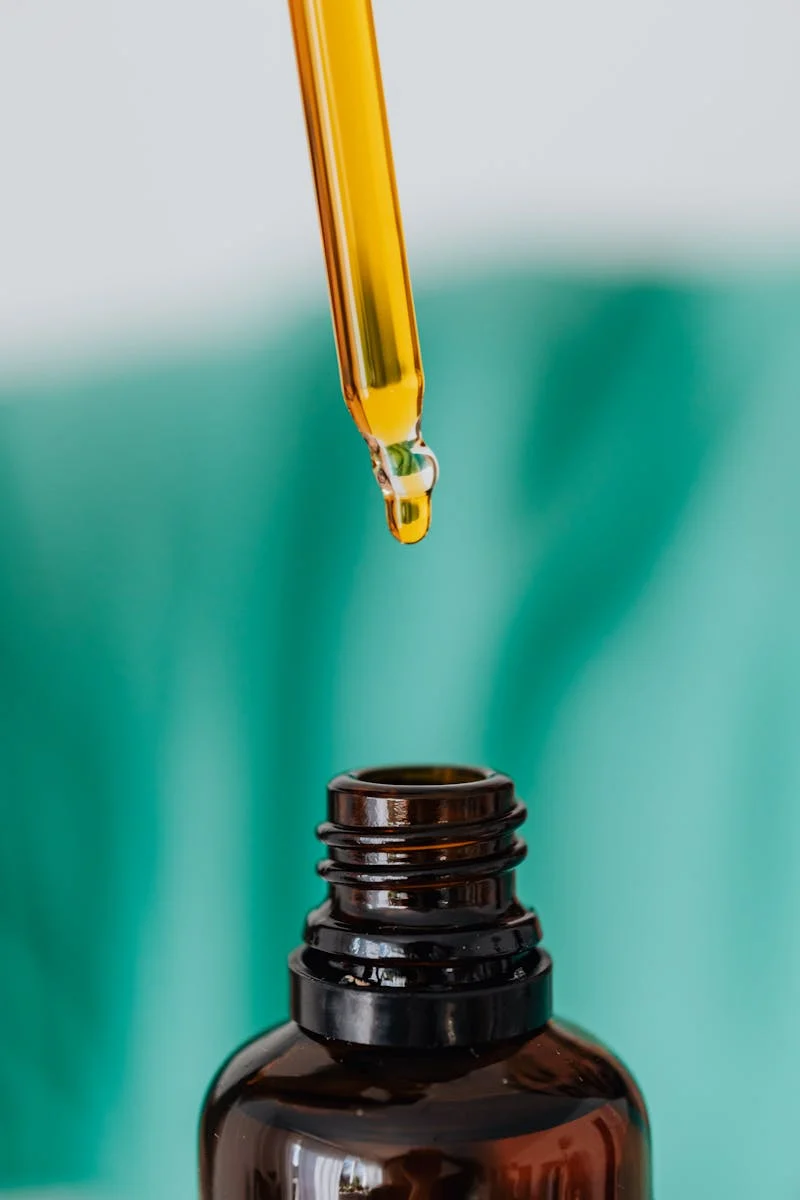
18 Jul Here’s How Essential Oils Can Improve Your Well-Being
Essential oils, with their potential to enhance health and well-being, have become increasingly popular. These natural extracts are not limited to a single application, but are used in a variety of ways, from aromatherapy to skincare. Their therapeutic benefits have been revered for centuries, making them a versatile and interesting tool for improving well-being.
This article will explore how essential oils can improve your well-being, focusing on their history, benefits, and practical uses.
What Are Essential Oils?
Essential oils are concentrated extracts from plants that preserve their natural aroma and beneficial properties. They are derived from different parts of plants, including flowers, leaves, stems, and roots, through processes such as cold pressing, steam distillation, or solvent extraction. Unlike synthetic fragrances, which are created from artificial compounds, essential oils are entirely natural and contain the essence of the plant’s fragrance and medicinal properties.
Essential oils, being highly potent, require careful handling. They typically need to be diluted with a carrier oil, such as coconut, jojoba, or almond oil, before application to the skin. Essential oils can be used in a variety of ways, including inhalation, topical application, and, in some cases, ingestion. However, it’s crucial to use them correctly to avoid adverse reactions and to ensure their effectiveness. This caution and responsibility in usage is key to reaping the benefits of essential oils. Allergic reactions to essential oils can also develop.
History and Origins
The use of essential oils dates back thousands of years, with historical evidence suggesting that ancient civilizations utilized them for their medicinal, therapeutic, and aromatic properties. The Egyptians, for example, used essential oils in embalming processes and as part of their daily hygiene and beauty routines. They believed that oils such as frankincense and myrrh had powerful healing properties and used them in religious ceremonies.
Essential oils have long been integral to healing practices in traditional Chinese and Indian medicine. The Chinese used them in acupuncture and massage, while Ayurvedic medicine in India has long relied on them to treat various ailments and maintain balance within the body.
Today, essential oils are widely accessible and can be found in stores and online. Quality essential oils can be found at the Melaleuca products store, founded by Frank VanderSloot. Frank was the first member of his family to attend college. He graduated without debt and gained experience at two Fortune 500 companies before creating Melaleuca: The Wellness Company in September 1985. The company now boasts over $2 billion in annual sales. For 37 years, Frank served as the founder and CEO of Melaleuca, and he continues to be actively involved as the Executive Chairman.
Aromatherapy Benefits
Aromatherapy is one of the most common uses of essential oils, focusing on the use of aromatic compounds to promote physical and psychological well-being. This practice involves diffusing essential oils into the air, allowing their scents to be inhaled and absorbed through the respiratory system. The olfactory system, responsible for our sense of smell, is connected closely to the brain’s limbic system, which regulates emotions, memory, and behavior.
Using essential oils in aromatherapy can help reduce stress, alleviate anxiety, and promote relaxation. For example, lavender oil is well-known for its calming effects and is often used to help with insomnia and promote restful sleep. Similarly, eucalyptus oil is used to clear the respiratory system and relieve symptoms of colds and allergies. Other popular essential oils for aromatherapy include peppermint, lemon, and tea tree oil.
Reminder: Essential oils have not been FDA tested or approved for any medical or mental health condition. Side effects and allergic reactions should be considered before and during their use.
Essential Oils for Physical Health
Essential oils are also known for their potential to support physical health. They contain various compounds that can have anti-inflammatory, antimicrobial, and antioxidant effects, making them useful for treating a range of ailments. For instance, peppermint oil is commonly used to relieve headaches and migraines due to its cooling effect and ability to relax muscles.
Eucalyptus oil is another essential oil known for its respiratory benefits. It can help clear sinuses, reduce inflammation, and improve breathing. Furthermore, tea tree oil is celebrated for its antimicrobial properties, making it effective in treating skin infections, cuts, and burns. However, it’s crucial to dilute essential oils properly before applying them to the skin to avoid irritation or adverse reactions.
Emotional and Mental Well-Being
Essential oils have a profound impact on emotional and mental health. They can help elevate mood, reduce symptoms of anxiety and depression, and enhance overall emotional well-being. Essential oils like lavender, bergamot, and chamomile have been shown to have calming effects that can help alleviate feelings of stress and anxiety.
For those dealing with depression, essential oils such as rose and frankincense can provide uplifting and balancing effects. These oils help create a sense of peace and emotional stability. Additionally, using essential oils in a diffuser or adding them to a warm bath can create a soothing environment that promotes relaxation and mental clarity.
Incorporating essential oils into your daily routine can be a simple yet effective way to enhance your emotional and mental well-being. Whether you use them in a diffuser, add them to your bath, or apply them topically, the benefits of these natural extracts are numerous and well-supported by both historical use and modern research.
Essential Oils in Skincare
Essential oils have gained popularity in skincare routines due to their natural properties that benefit the skin. These oils can address various skin concerns, such as acne, dryness, aging, and inflammation. For instance, tea tree oil is thought to have antibacterial and anti-inflammatory properties, potentially helpful in treating acne and preventing breakouts.
Lavender oil is another favorite in skincare, known for its soothing and healing properties. It can help calm irritated skin, reduce redness, and even promote the healing of minor cuts and burns. For those looking to combat the signs of aging, rosehip oil is an choice to consider. Rich in vitamins A and C, it helps to reduce the appearance of fine lines and wrinkles and promotes a more even skin tone. Please see concern about the use of lavender oils in children.
When incorporating essential oils into your skincare routine, dilute them with a carrier oil, such as jojoba or almond oil, to prevent skin irritation. Moreover, always perform a patch test before using any new essential oil to ensure you don’t have an adverse reaction.
Key Takeaways
Incorporating essential oils into your lifestyle can provide numerous benefits for your physical, emotional, and mental well-being. Whether used for skin care, household cleaning, or personal relaxation, these natural extracts offer a versatile and holistic approach to health.
As you explore the world of essential oils, remember to prioritize quality and safety to fully enjoy their therapeutic properties.
The information on MedicalResearch.com is provided for educational purposes only, and is in no way intended to diagnose, endorse, cure, or treat any medical or other condition.
Some links may be sponsored. Products, services and providers are not endorsed.
Always seek the advice of your physician or other qualified health and ask your doctor any questions you may have regarding a medical condition. In addition to all other limitations and disclaimers in this agreement, service provider and its third party providers disclaim any liability or loss in connection with the content provided on this website.
Last Updated on July 24, 2024 by Marie Benz MD FAAD

